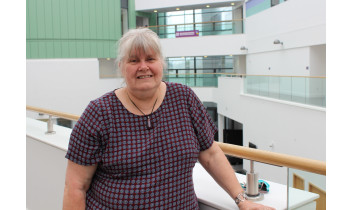
Mobile health apps for patient use: a research perspective
Prof Lesley Diack, Professor of Transdisciplinary and Technology Enhanced Learning at Robert Gordon University, Aberdeen, is giving her view on mobile health apps from a research perspective to show patients, what to look out for when choosing an app and what makes a good health app.
Over the last five years the number of mobile applications or apps for smart phones and tablet devices has increased exponentially. There are over a quarter of a million mobile apps for health and fitness alone. The numbers and diverse nature of these apps are set to increase further in the future as the mobile phone becomes even more widespread.
Not only can you use your mobile phone to make and receive phone calls, send and receive text messages, access social media, take photos and then send them immediately to friends and family, listen to music, watch television and films you, can now also monitor your health and fitness. Mobile phones can also be linked to other wearable devices for health and fitness such as fitbits. What more could the future hold for the patient with a smart phone?
Mobile apps could be of benefit to health care professionals or patients and carers, but this short article is about patient use. Recent research at Robert Gordon University School of Pharmacy and Life Sciences has explored how mobile apps can help educate, support and advise patients to take care of themselves.
This fits well with the move we are seeing in healthcare in the UK towards patient centred care and patient self-management of their condition. With health apps the patient has tools on their smart phone or tablet to help them manage aspects of their health.
However there are several issues with the mobile health apps as they are at present:
• Many do not have input from a health care professional.
• They often use medical language that patients find difficult to understand.
• They can be cumbersome and difficult to use.
Research has shown that of the apps that are downloaded, many are seldom or never used and even a good mobile app might only be used for six months before “online fatigue” sets in.
So, what makes a good mobile app? Our research over a number of years and projects has shown that the top five requirements that patients think makes a good and useful mobile app are:
1. Simple and uncluttered structure with easy navigation
2. Backed with an evidence base from a healthcare professional
3. Can be personalised and collect bespoke personal data that can be stored on a laptop
4. Non-medical language
5. Ideally linked to central electronic patient records or GP surgery.
The next ten years will see an upsurge in the development and use of mobile apps aimed at patients, but it is clear that they need to be designed with the patient, or even by the patient for them to be worthwhile and sustainable.